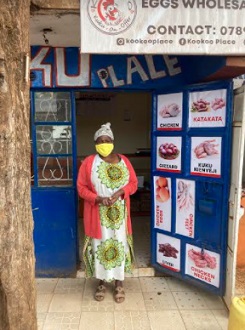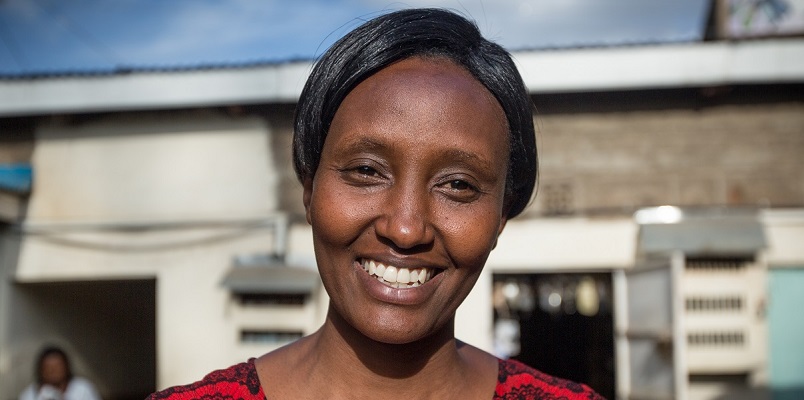
Business accelerators
Since our very first days in rural south India, Hand in Hand has prioritised a single demographic: women living in extreme poverty, often with no entrepreneurship experience at all, earning less than US $1.90 a day.
More recently, marking the next step in our evolution – and a departure from sector norms – we expanded our work to include another category of member altogether.
Launched in 2019, Hand in Hand’s Accelerator programmes target established and successful micro-entrepreneurs whose businesses are poised for even bigger and better things. Some are star graduates of our regular programmes – the Hand in Hand honour roll, with a proven track record of success. Others have built burgeoning micro-enterprises outside of our programmes but could still use our help scaling up. All have at least one employee, an average turnover of at least 5,000 KsH (US $45) and the potential to transform their communities through continued growth and success.
Both urban and rural in nature, businesses in our Accelerator run the gamut from salons to garbage collectors, fitting into one of six key sectors: retail, agriculture, manufacturing, services, hospitality or transportation. Seventy percent are owned and operated by women.
Why Accelerators
 Hand in Hand’s Accelerator programme is based on a basic premise: small businesses lift the communities around them by creating employment opportunities and enhancing livelihoods in a multiplier effect. It also represents a shift in scale from individual micro-enterprises to thriving business ecosystems. Just as fundamentally, the programme has long been championed by the experts: our members.
Hand in Hand’s Accelerator programme is based on a basic premise: small businesses lift the communities around them by creating employment opportunities and enhancing livelihoods in a multiplier effect. It also represents a shift in scale from individual micro-enterprises to thriving business ecosystems. Just as fundamentally, the programme has long been championed by the experts: our members.
From New York City to Nairobi and beyond, even the most successful entrepreneurs benefit from better information and finance to help them grow. So it was in a recent survey of Hand in Hand members in Kenya, who told researchers at 60 Decibels that although their quality of life had improved after taking our training, “expanded content” and “increased financing” could help them go even further.
By providing additional training in recordkeeping, marketing and cost management, among other subjects, as well as by linking them to external loans, our Accelerator programme does both. Helping successful micro-entrepreneurs scale up also moves them closer to more formal sources of finance and microfinance – a bridge to even greater expansion.

Our work with Visa
What happens when thousands of the most promising micro-entrepreneurs in Kenya receive specialist training, financial services and mentor support to help level up their businesses?
We teamed up with Visa to find out.
Results (so far)
Data experts 60 Decibels surveyed 700 members from our first Accelerator programme just seven months into their training. The results were overwhelmingly positive.
Eighty percent of members who’d taken out loans attributed the decision to their training. Nearly all of them, 97 percent, said those loans had helped their businesses. Ninety-six percent said their quality of life had improved as a consequence of the programme, and would be likely to recommend it to a friend. Profit margins members nearly doubled, to an average of 29 percent from 16 percent.
For more information about our Accelerator programme, contact Progamme Manager Jack Ord.
